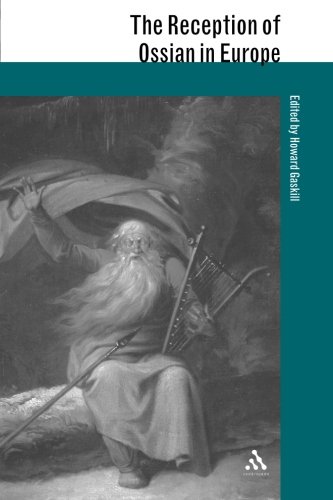

Most ebook files are in PDF format, so you can easily read them using various software such as Foxit Reader or directly on the Google Chrome browser.
Some ebook files are released by publishers in other formats such as .awz, .mobi, .epub, .fb2, etc. You may need to install specific software to read these formats on mobile/PC, such as Calibre.
Please read the tutorial at this link: https://ebookbell.com/faq
We offer FREE conversion to the popular formats you request; however, this may take some time. Therefore, right after payment, please email us, and we will try to provide the service as quickly as possible.
For some exceptional file formats or broken links (if any), please refrain from opening any disputes. Instead, email us first, and we will try to assist within a maximum of 6 hours.
EbookBell Team

5.0
90 reviewsJames Macpherson's Poems of Ossian, said to be translations from the Gaelic of a third-century bard, caused a sensation on their first appearance in the early 1760s. Contrary to the impression often conveyed in literary histories, enthusiasm for the poetry of the 'Homer of the North' cannot be dismissed as a short-lived fad, for its appeal lasted a century or more, both at home and abroad. There is hardly a major Romantic poet on whom it failed to make a significant impact. In the words of Sir Walter Scott, it succeeded in "giving a new tone ot poetry throughout all Europe" and its influence was ubiquitous, from Poland to Portugal, from Paris to Prague. The essays brought together here consider the reception of Ossian in England, Scotland, Wales and Ireland, as well as in a wide range of European countries. In some the focus is on individual writers (for instance, Goethe, Schiller, Chateaubriand, Espronceda), in others there is a broader sweep and a survey of reception in a national literary culture is offered (for instance, Hungary, Russia, Sweden). One of the two essays on Ossian in Italy at last gives Macpherson's influential epigone, John Smith, his due. Consideration is also given to Ossian's significance for the rise of historicism, and to non-literary forms of reception in music and art.
Series Editor: Dr Elinor Shaffer FBA, Institute of Germanic & Romance Studies, School of Advanced Study, University of London
Contributors:
Howard Gaskill, University of Edinburgh
Dafydd Moore, University of Plymouth
Donald Meek, University of Edinburgh
Mary-Ann Constantine, University of Wales
Mícheál Mac Craith, University of Galway
Joep Leerssen, University of Amsterdam
Colin Smethurst, University of Glasgow
Sandro Jung, University of Wales, Lampeter
Caitríona Ó Dochartaigh, Dublin Institute for Advanced Studies
Wolf Gerhard Schmidt, University of Saarbrücken
Peter Graves, University of Sweden
James Porter, University of Aberdeen
Gabriella Hartvig, University of Pécs
Nina Taylor-Terlecka, Oxford, UK
Peter France, University of Edinburgh
Enrico Mattioda
Francesca Broggi-Wüthrich
Andrew Ginger
Gerald Bär, Aberta University
Christopher Smith, Norwich, UK
Murdo MacDonald, University of Dundee
Reception of Ossian in Europe Review Reception of Ossian in Europe Review 2